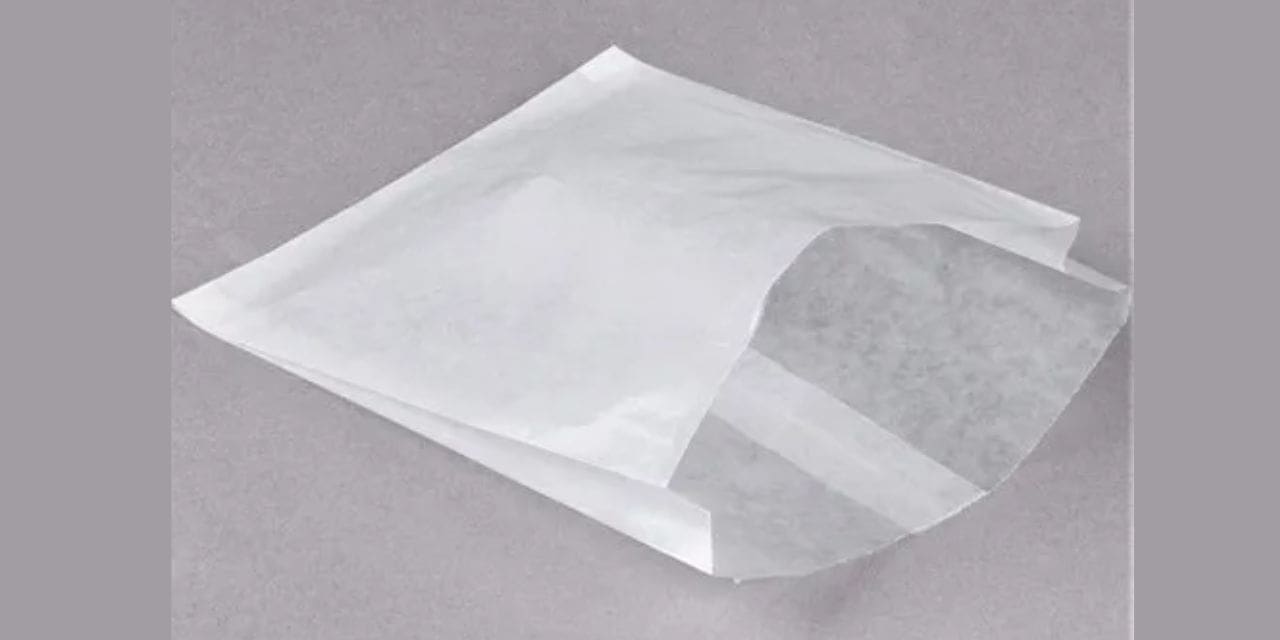Glassing paper is a type of paper that is made from bleached chemical pulp and is typically translucent, smooth, and glossy. It is used in various applications including, food packaging, pharmaceuticals, and personal care.
One of the key factors enhancing the market expansion is the increasing demand for packaging materials in the food and beverage industry. Glassing paper is used to package different food products such as confectionery, baked goods, and snacks. The food and beverage industry is growing at a significant pace. The increasing population and urbanization are crucial factors that drive the industry further. The rise in disposable income and changing lifestyle of consumers are also expected to boost the food and beverage industry. Therefore, the growth in the global food and beverage industry is expected to drive the demand for glassine paper as well.
Another driver of the market is the growing awareness about the environmental benefits of glassine paper over other types of packaging materials. Consumers are becoming more environmentally concerned and demanding eco-friendly packaging options. Glassine paper is biodegradable and compostable, making it an environmentally friendly option for packaging. Therefore, this trend is expected to continue in the future and is likely to drive the demand for glassine paper.
The glassine paper market is also fueled by the growth of the pharmaceutical industry. The pharmaceutical industry is booming at a significant rate driven by the factors such as the growing aging population, increasing incidence of chronic diseases, and rising healthcare expenditure. Glassine paper is used to package numerous pharmaceutical products including tablets and capsules. This is expected to drive demand for glassine paper during the forecast period.
The global glassine paper market is projected to witness positive growth in 2023, with worldwide revenues up by3.2%year-over-year. New market analysis by Future Market Insights (FMI) estimates the glassine paper revenues to nearly witness a1.6Xincrease between 2023 and 2033, reachingUS$ 4.99 billionby 2033 fromUS$ 3.08 billionin 2023, exhibiting a steady4.9%CAGR.
Country-wise Insights
How is the Glassine Paper Market likely to Expand across the United States?
The United States is home to a multi-billion-dollar printing and publishing industry which is expected to boost sales of glassine paper in coming years. According toThe Association of American Publishers (AAP), over1.8 billionprint books were sold by publishers in the country in 2018.
The United States glassine paper market is a niche market where glassine paper is primarily used for packaging and labeling food products, pharmaceuticals, and industrial products. The market in the United States obtaineda 17.8%share of global revenue in 2022 and is expected to expand at a moderate pace during the forecast period.Glassine paper is used for wrapping, preserving, and binding books, magazines, and other items.
It can also be used as interleaving paper in the print and publication industry. Moreover, the growing demand for vintage books and an increasing number of readers in the country are likely to positively shape the demand outlook for glassine paper in the forthcoming years.
The food industry is one of the primary end-users of glassine paper in the country. The food industry in the country is a large and diverse sector and is renowned in the world for its fast food sector. The fast food industry uses glassine paper for packaging a wide range of food items. The translucency of the paper allows the customer to see the food inside the packaging which is an important factor in making a purchase decision.
In recent years, the food industry in the United States has been under pressure to reduce its environmental impact and improve sustainability. Glassine paper is a recyclable and biodegradable alternative to plastic packaging. This makes glassine paper an attractive option for fast food chains looking to reduce their environmental footprint.
What Trends are impacting the Glassine Paper Industry in the United Kingdom?
The United Kingdom’s glassine paper market is a growing industry. In recent years, demand for glassine paper in the country is rising because of several factors. One of the key growth factors is the increasing popularity of collecting stamps, coins, and other collectible items. As more people take up collecting as a hobby, there is a corresponding increase in demand for glassine paper to protect and preserve these items. Therefore, the market in the United Kingdom is expected to surpassUS$ 229.7 millionby 2033, exhibiting a CAGR of5.2%.
Another factor driving the market in the United Kingdom is the rise of online marketplaces and e-commerce platforms. As more consumers turn to the internet for purchasing goods, the demand for glassine paper for packaging and shipping products has also increased.
The market growth is also boosted by the packaging industry as a whole. Since more companies look forward to reducing their environmental footprint, many are turning to glassine paper as an alternative to traditional plastic packaging materials.
Competitive Landscape
· Investing in Advanced Technologies: Many manufacturers are investing in new technologies such as digital printing and lamination to improve the properties of glassine paper and offer more customized solutions to customers.
· Focusing on Sustainability: With an increasing focus on environmental protection and sustainability, manufacturers are investing in eco-friendly production processes and materials to meet the expectations of environmentally conscious consumers.
· Diversifying their Product Offerings: Manufacturers are also diversifying product offerings to cater to a wide range of industries and applications. They are also introducing new variations of glassine paper, such as water-resistant and heat-sealed glassine paper, to meet the specific needs of different end-use industries.
· Building Strong Relationships with Suppliers: Manufacturers are building strong relationships with suppliers to ensure a steady supply of raw materials and to reduce production costs.

